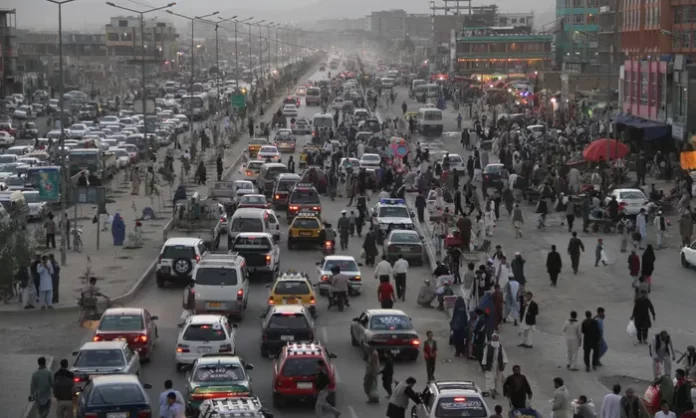The much more fatal consequence ensuing from this is the reputational cost to individuals and nations
State of denial and delusional notions can at times obscure the ability to critical analysis. One of the obvious consequences thereof is often misplaced megalomania and skewed strategies. The much more fatal consequence ensuing from this is the reputational cost to individuals and nations.
A case in point is Pakistan’s Afghan policy and its debilitating impact, effecting belief that the country successfully helped in first driving the Soviet Russian forces out of Afghanistan and then partnered with the US and Allies in the war on terror — a mission that the US terminated prematurely in late August 2021. It resulted in the return of former hosts of al-Qaeda i.e. Taliban who now apparently host Tehreek Taliban Pakistan (TTP), Islamic Movement of Uzbekistan (IMU), Islamic State of Khorasan (IS-K), Daesh, Ahrarul Hind, al-Qaeda inter alia. Top TTP leadership for sure is nestled in Kabul and other parts of Afghanistan — ably supported also by fighters of Hafiz Gul Bahadur (former North Waziristan warlord).
At what cost did Pakistan achieve the distinction of having been instrumental in defeating Russia and then “terrorists” whom the US signed into power again through the Doha process?
The advocates of successful Afghan policy rarely introspected that Pakistan’s placement in the Grey List of the Financial Action Task Force (FATF) in June 2018 stemmed from an old security-centric flawed policy devoid of considerations for the global response. The policy had centred on and inclined to the support for militant groups in and outside Pakistan and was tied to the Kashmir cause which meant “diplomatic, moral and political” backing of the freedom fighters. But the policymakers failed to comprehend India’s growing international relevance in the new millennium, particularly after the hijacking to Kandahar of the Indian airlines flight IC 814 in December 1999 by militants who ended up in Pakistan after their release from Indian jails. They kept ignoring the grave consequences of appeasement and accommodation of private militias — something that India successfully projected as instruments of Pakistan’s foreign policy.
Being reactive, skeptical and security-centric, Pakistan’s Afghan policy as a whole has remained anchored in the 19th century approach. As against this, the rest of the world pursues a policy treating economics as the key to maintaining, improving and expanding relations.
Through its short-sighted arm-twisting instinct — and to curb corruption within Pakistan — the country’s predatory bureaucracy has literally obstructed investment by big Afghan traders and investors. Potential Afghan investments worth hundreds of millions of dollars moved mostly to the UAE and Turkey after the fall of Kabul to Taliban in August 2021. Hundreds of millions of dollars transited through Pakistan — both in cash and through banking channels — but we failed to incentivise the Afghan businessmen for parking that money here.
The FBR and security agencies rely on mechanisms that are meant to check illegal trade of goods and currency but actually end up hurting genuine Afghan traders and deprive Pakistan of legitimate revenues.
The handling of people and trade cargo at Torkham — where nearly seven federal and provincial agencies operate i.e. intelligence, security, interior, commerce, finance ministries — is a classical example of how officials keep sowing bad blood among Afghans and indulge in extraction of graft, all at monetary and reputational cost for the country.
How can the Afghan policy be termed successful if it has reduced the country to the status of Afghanistan, Sudan and many other conflict-hit African countries?
What success if even after over decades of hosting Afghans, the country has failed to come up with a refugee law to help naturalise younger Afghans born here and also to encourage investment? This certainly would have minimised the dislike and hatred that most Afghans espouse and express for Pakistan.
Why can this policy not devise naturalisation/refugee laws and align them with those practised in other countries to benefit from the human and capital resource potential? If Turkey, Malaysia and the UAE could attract Afghan investments, why couldn’t Pakistan do so?
Agreed that geopolitics has played its own part in fomenting trouble between Afghans and Pakistanis, but Pakistan’s own policies too represent the biggest spoiler in this relationship. A non-innovative, punitive and reactive bureaucratic approach not only accentuates bilateral problems, but also paints Pakistan in a bad light abroad because of the negative stories born out of its outdated policies.
The civil and military bureaucracy either lacks vision for growth and investment or subvert — by design and for personal benefits — genuine trade and investment opportunities.
The Soviet Russians and the US-led Western forces did leave Afghanistan in ignominy. Pakistan has had a role in it because of multiple interests. But the unintended or overlooked consequence of this partnership with the US-West has entailed disastrous socio-political and economic fallout — both internally and externally.
Together, the Indian and the US information machineries have successfully painted Pakistan as a volatile, untrustworthy country which for too long ceded space to numerous Afghan and Pakistani non-state actors.
Pakistan’s placement on the FATF’s Grey List and ever-tightening international scrutiny of the country was the logical result of this appeasement of private militias and the socio-political support for them. It will take a while to recover from the stigma and pain that such reckless, short-sighted policy inflicted on Pakistan all these years.
Published in The Express Tribune, January 12th, 2023.




